17 F. high in the Twin Cities Tuesday.
40 F. average high on November 18.
36 F. high on November 18, 2013.
4" snow on the ground as of 7 pm yesterday.
November 18, 1981:
Heavy snow with near blizzard conditions resulted in over a foot of wet
snow, which caused the inflated fabric of the Metrodome to collapse and
rip.
November 18, 1957: Snowstorm in Southeast Minnesota. A foot is dumped at Winona. Heavy crop losses.
Crazy Good
I
just returned from Washington D.C. - where a forecast low of 20F is
"frigid" and flurries can send the local population into a
grocery-store-emptying panic. When I talk about weather in my home state
my D.C. relatives look at me funny, with a mixture of awe and pity.
Like I'm some crazy superhero for living here.
Today is the 9th
day in a row below freezing. We'll go 11-12 days below 32F, the longest
stretch below freezing in November since 1996, possibly 1880. Go big or
go home, right?
A morning burst of flurries capable of a quick
coating of icy fun marks the leading edge of a reinforcing shot of
numbing air. Behind this latest clipper highs hold in the teens tomorrow
- giving way to a welcome thaw by the weekend. You'll be amazed (and a
little embarrassed) how good 35-40F can feel after a lengthy spell of
nanook air.
Thanksgiving travel paranoia is setting in, but right
now I don't see any knock-down storms between now and late November. A
big storm tracks from Dallas to Chicago, brushing us with a cold rain
late Sunday; ending as a little snow Monday.
Light snow may brush
far southern Minnesota Thanksgiving Day, followed by another cold swipe.
But the GFS model insists we'll see more 30s by early December.
 Ice Safety
Ice Safety.
With our extended spell below freezing lakes are freezing us rapidly;
there's a temptation to get out and ice fish or skate sooner rather than
later. But the
Minnesota DNR reminds you that the guidelines above are minimums, assuming new, clear ice. Be careful out there.
 An Early Meteorological Thanksgiving
An Early Meteorological Thanksgiving.
Yes, turkey-day is next Thursday, but I'm mouthing a quiet prayer of
thanksgiving for 30s this weekend, even a shot at 40 degrees, which is
average for November 18, if anyone asks. We're due for a little average.
Rain (and some icing) Sunday ends as a period of snow Monday. Right now
it doesn't look like a major accumulation. We cool off and dry out a
bit next Tuesday into Thanksgiving Day. Source: Weatherspark.
 Temporary Shift in the Pattern
Temporary Shift in the Pattern.
A persistent northwest wind flow aloft becomes more southerly over the
Plains and Midwest by late week, allowing moisture from the Gulf of
Mexico to surge north. The atmosphere aloft should be just mild enough
for a little rain by Sunday, possibly freezing on contact, especially
outside the MSP metro. Enough cold air surges south by Monday for a
changeover back to snow across Minnesota.
 60-Hour Snowfall Potential
60-Hour Snowfall Potential.
Buffalo, New York has already been hammered, and models print out
another 36"+ snow by Friday as temperatures in single digits pass over
relatively mild water in the Great Lakes, a nearly 40 degree temperature
differential. Source: NOAA NAM model and HAMweather.
Professor: Winter Weather Can Cause Phobia.
No kidding. Just watch local television for a few hours and you'll be
afraid to get out of bed. But for 1 out of 10 Americans there seems to
be a very real link between winter weather (mayhem) and outright fear.
Here's an excerpt from
theINDYchannel.com: "...
Associate
Professor of Geography Jill Coleman said about 10 percent of the
population actually fear meteorological mayhem. She called it weather
phobia. Coleman was recently published in The Bulletin of the
Meteorological Society for her research into the condition. "We want
people to have a healthy fear of weather and do the normal things like
monitoring radio and TV and follow the precautions," Coleman said..."
Are We Doomed To Arctic Winters in America?
I think the jury is still out on this question, and what impact a
rapidly warming Arctic (and drop in jet stream winds over far northern
latitudes) will have on our weather. Here's a clip from a story at
Popular Science: "...
But
Jennifer Francis, a researcher with the Institute of Marine and Coastal
Sciences at Rutgers University who studies the impact of Arctic warming
on the global climate, disagrees. Her research predicts that as Arctic
warms (and it is warming extraordinarily quickly) the jet stream will
weaken and narrow. "When you have a strong jet stream it's like a thick
rope. You can give one end a tug and not much happens." But as it
weakens, she says, it's more like a string. A shake (or a typhoon) will
send waves all along its length, causing the Arctic monster to move
south more often. While Hoerling dismisses Francis's research as "pure
conjecture", and points to early failures to verify her predictions,
other meteorologists and climatologists look at several recent studies and are more convinced..."
Fun Fact? Perhaps I have a different definition of the word "fun", but here you go. Yes, misery loves company. Tweet courtesy of the
Wilmington, North Carolina office of the National Weather Service.
Greatest 24-Hour Snowfall on Record For The U.S.? Christopher C. Burt has the story at
Weather Underground; here's the introduction: "
This
past week some exceptional snowfall amounts were reported in northern
Wisconsin (50.1” at Gile) and the Upper Peninsula of Michigan (42.5” at
Ishpeming 7 NNW) largely the result of some intense lake-effect snow
squalls coming off Lake Superior. The accumulations occurred over
approximately a 96-hour period from November 11-14. Amazing as these
totals were they couldn’t compare to the official U.S. record of 75.8”
at Silver Lake, Colorado in 24 hours on April 14-15, 1921, or another
contender for such: the 78” at Mile 47 Camp in Alaska on February 7,
1963..."
3-5 Foot Lake Effect Snows Cripple Buffalo.
Many of the local TV stations are going with wall to wall coverage; it
would appear that most of western New York State is shut down. More
details and links to from
TVSpy.
Harsh Winter Outlook Made A Bit More Dire By Siberia Snow.
Could the rate and extent of autumn snows across Siberia be a
(reliable) indicator for the severity of winters from the USA to Europe?
At least one researcher in Massachusetts believes the answer is yes.
Here's a clip from
Bloomberg: "...
About
14.1 million square kilometers of snow blanketed Siberia at the end of
October, the second most in records going back to 1967, according to Rutgers University’s Global Snow Lab.
The record was in 1976, which broke a streak of mild winters in the
eastern U.S. In addition, the speed at which snow has covered the region
is the fastest since at least 1998. Taken together they signal greater
chances for frigid air to spill out of the Arctic into more temperate
regions of North America, Europe and Asia, said Judah Cohen, director of seasonal forecasting at Atmospheric and Environmental Research in Lexington, Massachusetts, who developed the theory linking Siberian snow with winter weather...
Image above courtesy of
Rutgers University Global Snow Lab.
Warm Arctic, Cold Continents. A Common Pattern Related to Arctic Sea Ice Melt, Snow Advance and Extreme Winter Weather.
What's happening in the Arctic may be having a domino effect farther
south, impacting the configuration of the jet stream, helping to spark
more frequent and extreme weather events. A link to Dr. Judah Cohen's
research is
here.
5 Standard Deviation Event?
This was from Saturday, but I wanted to include this - more energy in
the system (coupled with a jolt from ex-Typhoon Nuri) is creating some
eye-popping anomalies that just can't be ignored or dismissed. The warm
ridge over northwest Canada and Alaska over the weekend was an extremely
unusual and improbable event, helping to create the conditions
necessary to push abnormally cold air into the USA. Source:
Capital Climate.
Yes, The Weather Is Polar. No, It's Not The Vortex. NPR
corrects some misconceptions about the (alleged) polar vortex, which
has become a catch-all for every significant cold front that sails south
of the Canadian border. No, this is not the Polar Vortex. Here's an
excerpt: "...
The polar vortex is a constant flow of arctic air
circling in the upper atmosphere above the North and South Poles. The
cold is usually corralled up there — but sometimes little bits of the
arctic air escape. "It's just the ordinary sort of weather you expect in
winter," Masters says. "Every now and then you get a big trough of low
pressure. It dips down from the pole and it allows arctic air to seep
southwards..."
Jet stream (GFS) winds obtained using Climate Reanalyzer (http://cci-reanalyzer.org), Climate Change Institute, University of Maine, USA.
The Web Is Dying; Apps Are Killing It. We're transitioning from the wild, wild west to more of a walled garden, as described by
The Wall Street Journal - here's the intro: "
The
web - that thin veneer of human-readable design on top of the machine
babble that constitutes the Internet - is dying. And the way it's dying
has farther-reaching implications that almost anything else in
technology today. Think about your mobile phone. All those little
chiclets on your screen are apps, not websites, and they work in ways
that are fundamentally different from the way the Web does..."
Quartz begs to differ, arguing that we're looking at the relationship between the web and apps all wrong.
Scientists Plan to Resurrect the Wooly Mammoth, Jurassic Park-Style. What can possibly go wrong? Here's the intro to a story at
Quartz: "
Scientists may finally have the means to clone a 40,000-year-old woolly mammoth. But will they have the gall? “Buttercup,” the mammoth in question, was found in Siberia last year,
impeccably preserved in snow and ice. Excavators extracted vials of
liquid blood from the carcass and now researchers at the South Korean
biotech company SOOAM are testing it for a complete set of DNA..."
Photo credit above: "Partying like it's 40,000 BC." (Reuters/Toru Hanai).
Auto-Lacing Shoes Are Here. Because there's nothing more annoying than having to reach down and tie your laces, right? Here's an excerpt from
Gizmag: "...
Auto-lacing
shoes are here, finally. And pretty well right on schedule. Thirty
years after Back to the Future II sold the world on the concept in a
fictional 2015, a startup called Powerlace in St Hubert, Canada has
created a shoe that's claimed will pave the way for a paradigm shift in
the shoe industry. The company's system uses a pressure plate in the
heel to tighten shoes and a level at the lower rear end to release them,
with an adjustment puller near the tongue..."
TODAY: Icy coating of flurries, gusty. Winds: NW 15-25. Feels like +5. High: 22
WEDNESDAY NIGHT: Windy and cold. Low: 4
THURSDAY: Partly sunny, feels like -5F. High: 16
FRIDAY: Breezy, not as harsh with intervals of sun. Wake-up: 6. High: near 30
SATURDAY: Mostly cloudy, welcome thaw. Wake-up: 28. High: 38
SUNDAY: Cold PM rain, icy patches possible. Wake-up: 34. High: 39
MONDAY: Changeover to snow. A little slush? Wake-up: 31. High: 34
TUESDAY: Peeks of sun, better travel day. Wake-up: 15. High: 27
Climate Stories...
Here's How The U.S. Can Adapt To Climate Change.
Climate Central has an interesting story - here's a clip: "...
Climate change poses heat- and flood-based risks to roads, power plants, harbors, water delivery systems, rail lines, water treatment facilities
and bridges. The group urged the federal government to reduce those
risks by building in low-risk areas, where possible, and by retrofitting
vulnerable infrastructure that can’t be relocated. The group also
called for a boost in spending on green and natural infrastructure, such
as the replanting of wetlands to buffer against flood surges and sea level rise..."
7 Solutions to Climate Change Happening Now. Here's an excerpt from an article at
Scientific American: "...
More than 20 percent of new, large power plants
built in the U.S. in 2013 employ sunlight to generate electricity. And
that does not include solar panels on people's rooftops, which alone
added nearly two gigawatts of capacity last year. In addition, natural
gas replaced coal as the largest source of new electricity generation.
The shale revolution enabled the U.S. to reduce its carbon dioxide
emissions “while maintaining economic growth by switching from coal to
gas," notes Nobuo Tanaka, former head of the International Energy Agency
(IEA) and a now a visiting fellow at Columbia University..."
Ocean-Gliding Robots Used To Study Melting Antarctic Sheet Ice. Here's an excerpt and link to another interesting article at
gizmag.com: "
The
use of "ocean gliders" for conducting research in oceanic conditions
not ideal for regular methods has been catching on in the scientific
community. Examples of this have been seen in the detection of endangered whales in the North Atlantic and a study of the Atlantic sturgeon.
Researchers have now turned their robotic ocean helpers towards
Antarctica, to study the rapidly-melting ice sheets on the coast of the
western part of that polar land mass..."
The Greening Of Barack Obama. Will he yet become the "environmental president"?
Politico takes a look at his record, and a sense of newfound urgency, especially around climate change. Here's the intro: "
For
Barack Obama, it wasn’t easy being green — until, suddenly, it was.
During his earlier years in office, Obama never pushed the environment
to the forefront of the national agenda. The economy took precedence.
Then health care. At one point, toward the end of Obama’s first term,
environmentalists counted the months between presidential uses of the
term “climate change....” (Photo: White House).
63% of Americans Support U.S. China Climate Deal. Here's an excerpt from a story at
USA TODAY: "...
By
60%-25%, those surveyed say Congress and Obama should approve
construction of the Keystone pipeline, which would carry oil from
Canada's oil sands region through the Midwest to refineries in Texas.
The House passed a bill approving the pipeline Friday, and a Senate vote
is scheduled for Tuesday. Obama has indicated he is considering a veto..."
Local Leaders to Federal Government: Help Us Prepare for Climate Change. Here's a clip from a story at WRI, the
World Resources Institute: "...
Cities
throughout the United States are at the forefront of climate change.
And many of them have also been at the forefront of climate action,
working to adapt to increased flooding from sea-level rise, damages from
extreme weather, and other impacts. Today, a group of local officials outlined what they need from the federal government to succeed in building climate-resilient communities. The report comes from the Task Force on Climate Preparedness and Resilience, a group of 26 mayors, governors, tribal leaders, and other local officials from around the nation..."
Photo credit above: "
Flooding in Saratoga, Wyoming." Photo by SFC McGuire/Wyoming National Guard.
Extraterrestrials On A Comet Are Faking Climate Change. Or Something.
TIME Magazine takes a look at conspiracy theories that just won't die; here's an excerpt: "...
The
21st century alone has seen the rise—but, alas, not the final fall—of
the birthers and the truthers and pop-up groups that seize on any
emerging disease (Bird flu! SARS! Ebola!) as an agent of destruction
being sneaked across the border from, of course, Mexico, because… um,
immigration. The problem with conspiracy theories is not just that
they’re often racist, foster cynicism and erode the collective intellect
of any culture. It’s also that they can have real-world consequences.
If you believe the fiction about vaccines causing autism, you will be
less inclined to vaccinate your kids—exposing them and the community at
large to disease. If you believe climate change is a hoax, you just
might become the new chairman of the Senate’s Environment and Public
Works Committee, as James Inhofe, Republican of Oklahoma soon will be, thanks to the GOP’s big wins on Nov. 4..."
Photo credit above: "
Just to be clear: This is a comet, not a spacecraft." ESA.
Farmers and Scientists Don't Agree on Climate Change.
Blanket statements like this are a bit dangerous; I've talked to many
Minnesota farmers who acknowledge changes in their fields in the last
few decades; many are keeping an open mind about climate volatility, in
spite of the fact that this issue has become a political football and
apparent litmus test for conservatism. Here's an excerpt from Epoch Times: "...A
quarter of producers say they believe climate change is caused mostly
by natural shifts in the environment, and 31 percent say there isn’t
enough evidence to determine whether climate change is happening or not.
Published in the Bulletin of the American Meteorological Society,
the survey results highlight the division between scientists and
farmers over climate change and the challenges in communicating climate
data and trends in non-polarizing ways, says Linda Prokopy, associate
professor of natural resource social science at Purdue University..."
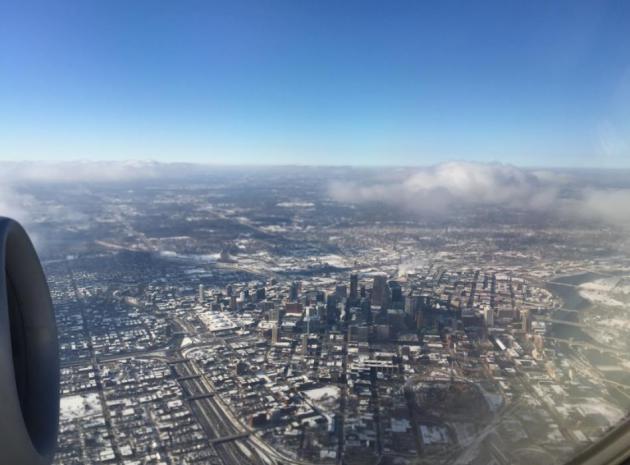
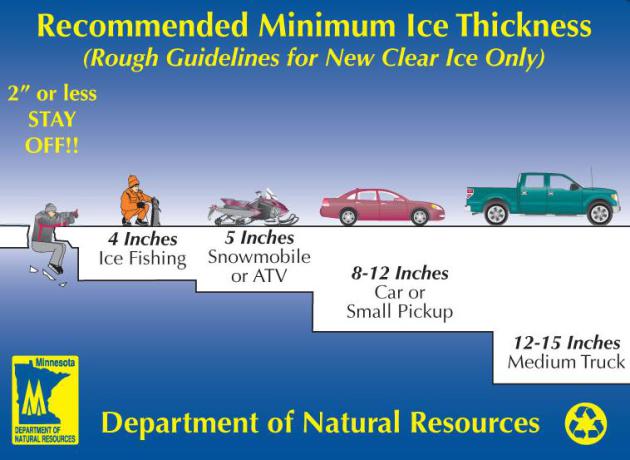
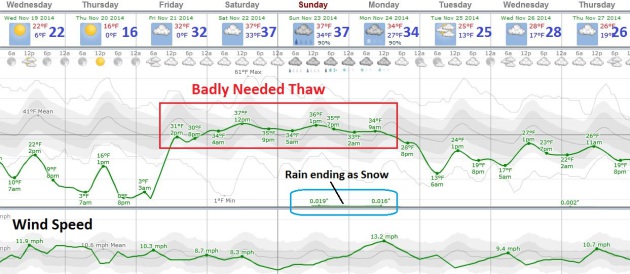
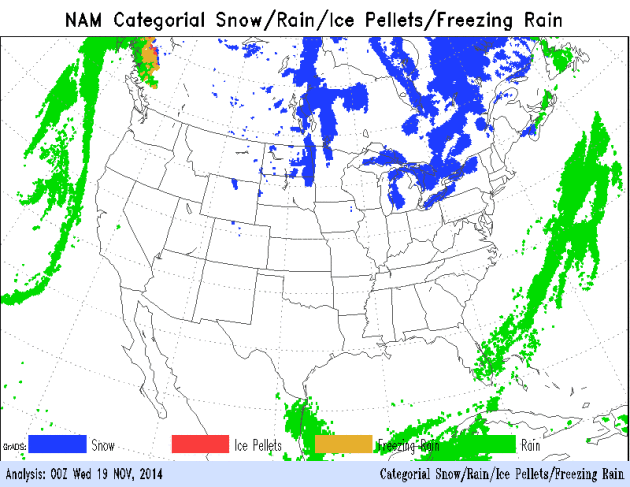
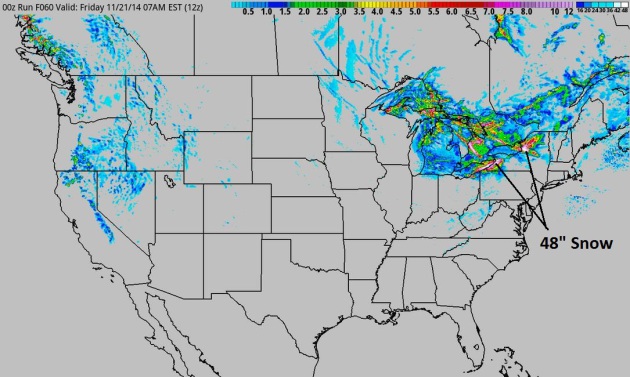
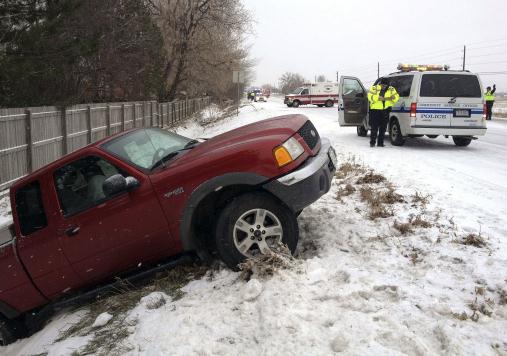
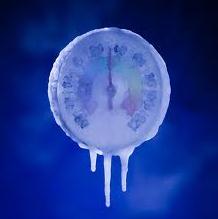
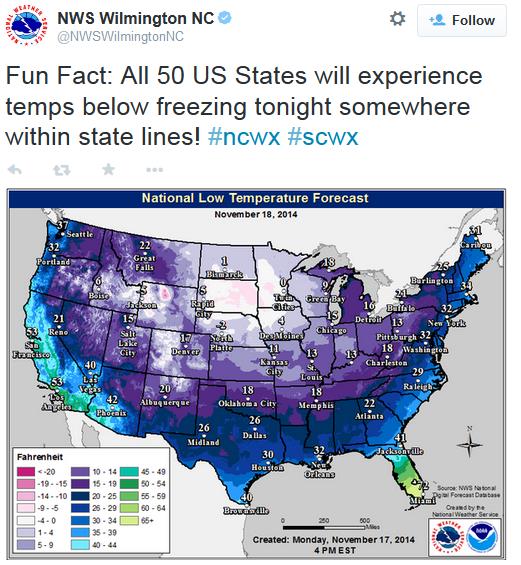
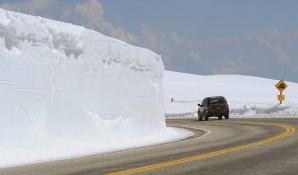
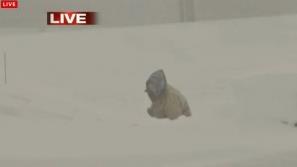
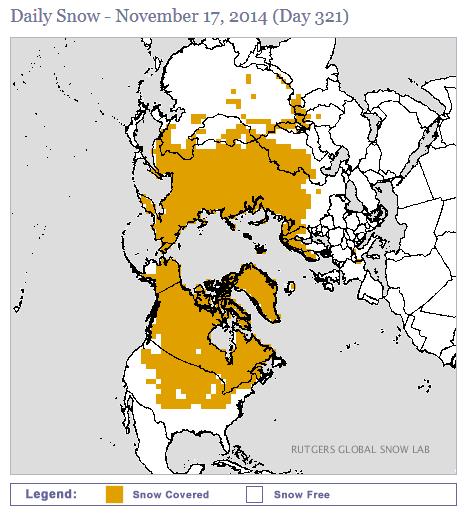

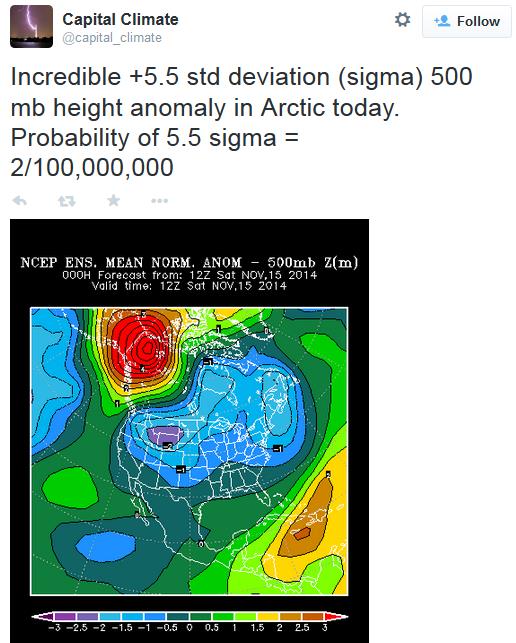
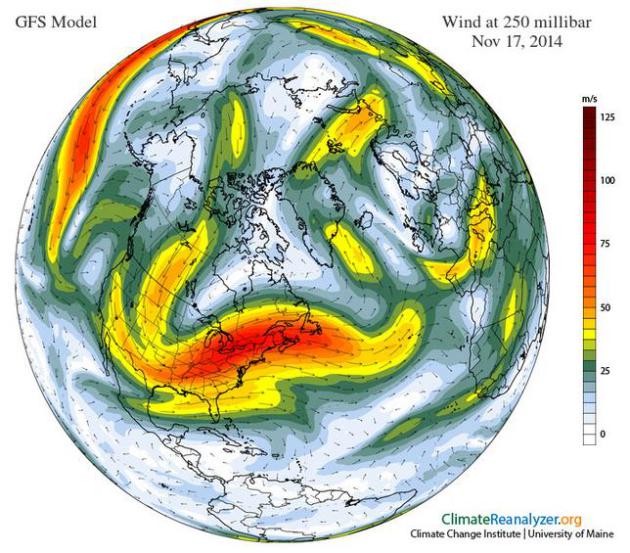

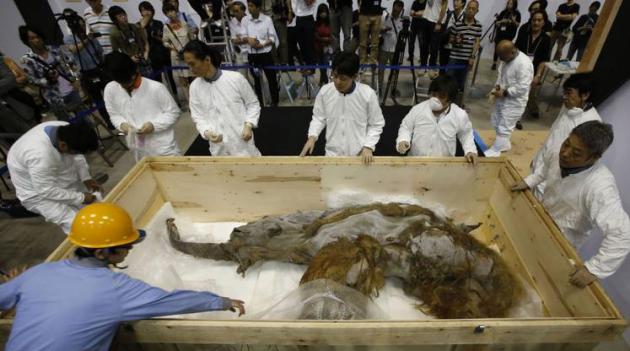

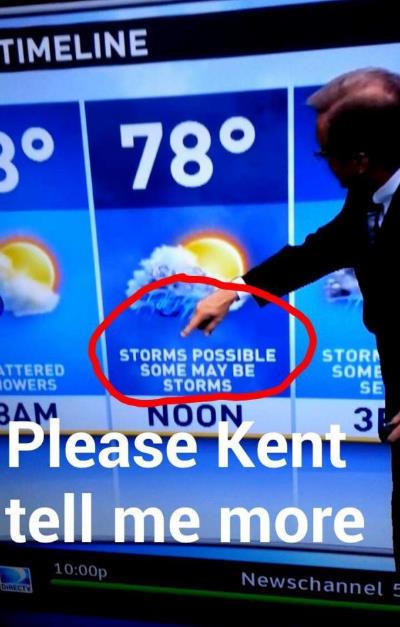


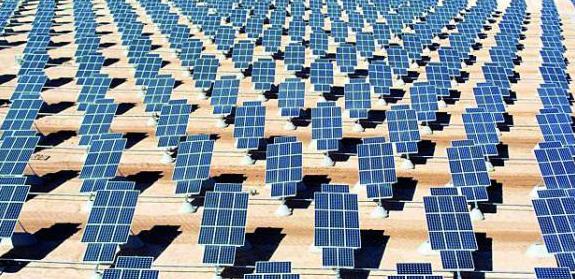
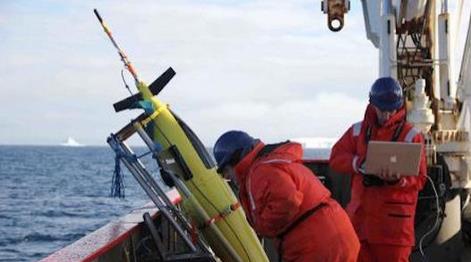
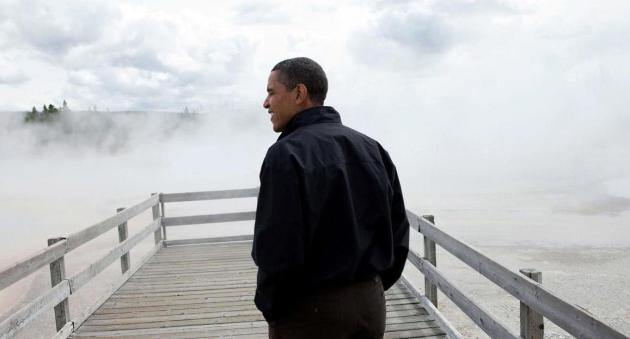

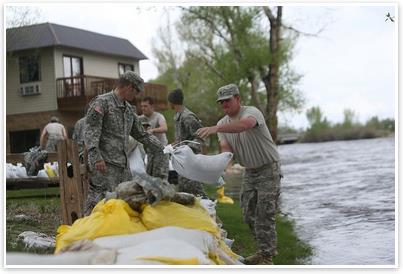
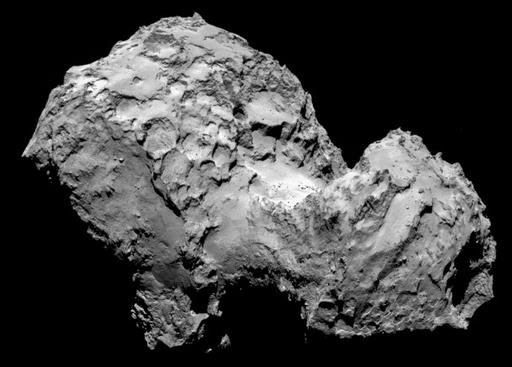
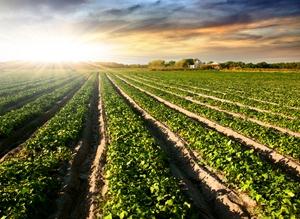
No comments:
Post a Comment